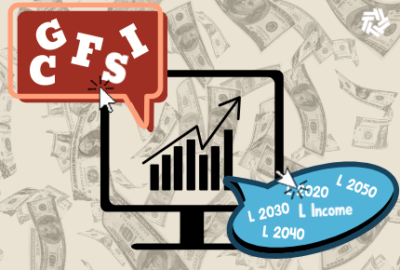Safest place for your nest egg: With 7% return!
Financial planner Arthur Stein, who has a large number of federal-retiree clients, says there is another option for them — or anyone else — who may want to...
With a hot war in Europe, galloping worldwide inflation and growing shortages on the home front, many investors are looking for the nearly impossible: A ‘safe’ place to stash some of their retirement nest egg, with Uncle Sam, at an eye-popping current rate of return of 7.1%. When investors cash in their Treasury I-bonds they pay federal (but no state) taxes on the interest only.
The program is open to everybody. But it’s especially attractive for federal Thrift Savings Plan investors. Many TSP investors feel that the TSP’s treasury securities G-fund is their safest harbor in tough times. The problem is the G fund year to date return has been less than 1%. That’s better than the short-term losses of the C, S and I stock-indexed funds. But over time, inflation would eat away those low returns, especially for civil service retirees who get so-called diet COLAs when the rate of inflation exceeds 2%.
During the Great Recession (2008-9) many investors moved their retirement nest eggs from the stock indexed C, S and I funds into the G fund. Many also bought G-fund stocks rather than the stock indexed funds even though, as it turned out, they were only down briefly — in effect “on sale” — by nearly 55%. They missed getting the stock funds at sale prices and also missed its record rise during the comeback years.
Virtually all of the TSP’s self-made millionaires got to that exalted level by investing — and holding stock index funds — for the long haul (average 29 years). And they continued to buy shares when the markets were down. But the new world situation has revived and intensified fears of losing money for retirement years. But financial planner Arthur Stein, who has a large number of federal-retiree clients, says there is another option for them — or anyone else — who may want to invest some of their emergency funds or excess cash in a super-safe option. He’s my guest today on our Your Turn radio show (10 am EDT). Listen if you can, or catch the show (archived on our home page) later. Here’s his outline for what we’ll be talking about today:
A government guaranteed bond paying 7.1% interest? Yes, it’s real.
If you are tired of the low interest you receive from bank accounts, it’s time to think about Series I Savings Bonds (“I Bonds”) from the U.S. Government, sold through TreasuryDirect. These bonds are currently paying 7.12% in interest.
I Bonds are 30-year bonds issued and guaranteed by the U.S. Treasury. The I Bond interest rate is guaranteed for six months and then adjusts for inflation over the last six-month period.
The current, 7.12% rate will be adjusted in April for the next six months. It could be higher or lower than the current rate. It depends upon whether inflation over the previous six months has increased or decreased.
If you hold the bond for at least five years, when you cash in (redeem) the bond, you receive all the interest the bond has earned plus the amount you paid for the bond. If you redeem after the one-year lock-in but before five years, three months of interest is deducted. Taxes on the interest are only due when you redeem the bond.
Advantages of Series I Savings Bonds include:
- Guaranteed by the U.S. Government and no fluctuation in value.
- Currently, a much higher interest rate than bank accounts, CDs and the G Fund.
- No commissions (to buy or sell) or any other fees.
- Whether you sell an I Bond before it matures or hold it to maturity, you always receive full face value plus interest.
- Taxes on interest are postponed until a bond is sold or matures and there are no state taxes.
Disadvantages:
- I Bonds cannot be sold for 12 months after the original purchase. Don’t invest funds you might need to spend within twelve months.
- The maximum investment is $10,000 per calendar year per social security number.
- There is a penalty equal to three months of interest if a bond is sold less than five years after purchase
- Interest must be reinvested; it cannot be taken as income.
- Purchases and sales can only occur in a TreasuryDirect account; they cannot be purchased, held or sold through the TSP or any other type of account, whether tax deferred or taxable.
More detailed information can be found at Treasury Direct. To purchase Series I Savings Bonds, click here.
Compared to a bank account, Series I Savings Bonds are a great combination of a high interest rate, government guarantee, favorable tax treatment, and zero volatility.
Nearly Useless Factoid
Giraffes have same number of cervical vertebrae, or neck bones, as nearly every other mammal.
Source: National History Museum
Copyright © 2024 Federal News Network. All rights reserved. This website is not intended for users located within the European Economic Area.
Mike Causey is senior correspondent for Federal News Network and writes his daily Federal Report column on federal employees’ pay, benefits and retirement.
Follow @mcauseyWFED






